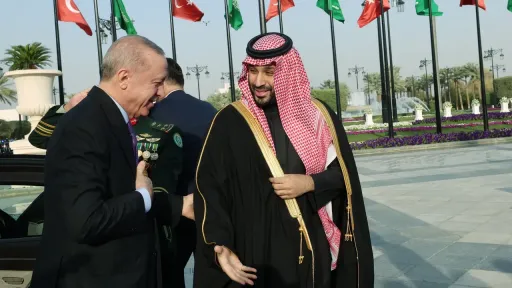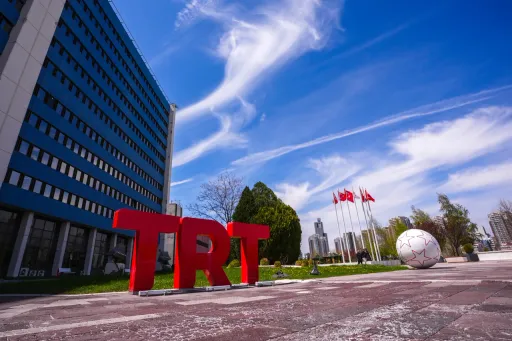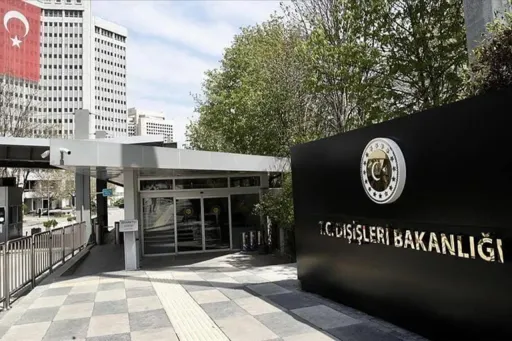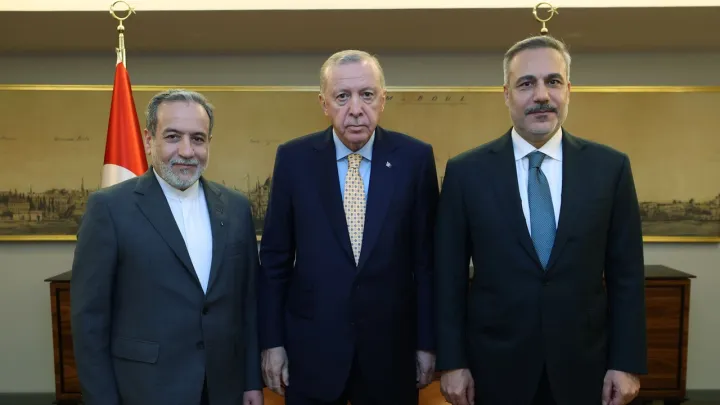Sport
Dollar
43,5375
0.04 %Euro
51,4875
0.15 %Gram Gold
6.883,9500
-0.38 %Quarter Gold
12.309,5300
0 %Silver
112,1400
-8.42 %From drones to diplomacy, Türkiye’s multi-front strategy has dismantled the PKK’s power and ended its decades-long terrorism — not just through force, but by changing the conditions that allowed terror to take root.
After nearly four decades of bloodshed and violence, the PKK, a group designated as a terrorist organisation by Türkiye, the United States, and the European Union, has formally declared its dissolution and the laying down of arms.
The announcement on Monday brings to a close one of the bloodiest chapters in modern Türkiye’s history, one marked by tens of thousands of deaths, devastated communities, and a national security challenge that spanned generations.
But the decision did not come out of nowhere. It is the result of a long and complex evolution—one that reflects not only Türkiye’s relentless counterterrorism efforts but also its transformation as a nation. A new military doctrine, cutting-edge defence technology, smart intelligence coordination, diplomatic assertiveness, and targeted investments in underdeveloped regions all played a role.
Relentless military pressure and modernised tactics
At the heart of Türkiye’s victory over the PKK is a remarkable military transformation. In the past, the country’s fight against terrorism relied heavily on ground troops and fixed strategies, often in treacherous terrain and with limited technological advantages. That began to change in the 2010s, as Türkiye launched a massive overhaul of its armed forces. The rise of the domestic defence industry allowed Türkiye to manufacture its own drones, guided munitions, surveillance systems, and secure communication technologies.
By the early 2020s, Turkish-made unmanned aerial vehicles—most notably the Anka, Bayraktar TB2 and later the more advanced Akinci—were regularly used to identify and eliminate PKK terrorist targets in remote mountain regions, both within Türkiye and across the Iraqi border. Combined with the establishment of permanent military outposts high in the southeastern mountains, supported by surveillance and long-range strike capability, the PKK’s traditional areas of control became increasingly inaccessible. The group that once used mobility and secrecy as its strongest assets now found itself visible, vulnerable, and increasingly isolated.
But firepower alone was not enough. Behind the scenes, Türkiye’s National Intelligence Organization (MİT) led a quiet revolution in the state’s capacity to wage information warfare. Real-time coordination between intelligence and military forces allowed for surgical operations that dismantled the PKK’s leadership and logistical networks. High-ranking operatives were systematically eliminated or captured. PKK's so-called safe havens raided. Cross-border operations, once controversial, became a regular and highly effective tactic.
Strategic international isolation
Meanwhile, the Turkish state expanded its war on terror to the diplomatic arena. Years of steady pressure on international partners—especially in Europe and the Middle East—began to pay off.
The PKK’s ability to operate freely in foreign capitals, launder money, and fundraise under various political covers diminished significantly. Türkiye’s growing geopolitical clout meant its concerns were increasingly taken seriously by global powers.
Through economic ties, energy diplomacy, and regional partnerships, Ankara slowly choked off the PKK’s support networks abroad.
Socioeconomic investments in the southeast
However, what truly turned the tide was the government’s strategic investment in the very region the PKK had long claimed to represent. Throughout the 2010s and 2020s, southeastern Türkiye saw an unprecedented wave of development. Crumbling roads gave way to highways.
Remote villages gained access to healthcare and education. Local industries received incentives to grow. New universities opened their doors to students who, in a previous generation, might have seen no future beyond joining the insurgency. Urban renewal projects, job creation programs, and expanded cultural freedoms changed the social fabric of cities like Diyarbakir, Mardin, and Sirnak.
In parallel, the population of the region—especially the younger generation—began to turn away from the narrative of violence. With better education, greater economic opportunity, and growing civic engagement, the PKK’s message began to sound increasingly hollow.
What had once been framed as a struggle for rights and recognition was now seen by many as an obstacle to progress and peace. The group’s violent methods were increasingly viewed as incompatible with the aspirations of a new generation that wanted to be part of a modern, democratic Türkiye.
In this changing context, the PKK’s long-standing attempt to act as both a military and political actor began to fail. Its political offshoots lost credibility, particularly when their ties to violence became more difficult to explain. Simultaneously, its armed wing grew increasingly fragmented, with leaders defecting, fighters surrendering, and local support drying up.
The Middle East is changing—and so did the PKK’s strategic value
The broader regional picture also shifted. The end of major hostilities in Syria and the slow stabilisation of Iraq left less room for militant groups to maneuver. Türkiye’s deepening ties with Iraq’s central government and the Kurdish Regional Government in the North led to coordinated operations against PKK camps in the mountains. Once considered safe havens, these areas became high-risk zones for PKK activity. With no territory to govern, no safe rear base, and dwindling recruitment, the terror group’s operational capacity shrank to a shadow of what it once was.
By 2025, the PKK was no longer the organisation that had once paralysed Türkiye with fear. It was a diminished and demoralised remnant, clinging to outdated ideology and vanishing influence. Its announcement of dissolution, while historic, was in many ways a recognition of defeat—a reluctant acknowledgment that the struggle it once led had no place in the Türkiye of today.
A strategic victory years in the making
The Turkish government has responded cautiously but resolutely. Officials have praised the outcome as a victory for the nation, while also emphasising the need for vigilance. President Erdogan, in a recent address, hailed the dissolution as a testament to Türkiye’s unity and resolve.
“This is not only a military triumph,” he said, “but a triumph of our people’s will to live in peace and dignity, side by side, without fear.”
Indeed, the end of the PKK terror group is not just a story about defeating terrorism—it is a story about transformation.
Through strategic persistence, technological advancement, and social inclusion, Türkiye managed to close a violent chapter in its history.
Whether the peace that follows will be lasting depends not only on security policy, but on continuing to build a state that all its citizens feel invested in.
For now, however, one thing is clear: what once seemed impossible is now real. The PKK is over. And with it, a nation wounded by decades of terror begins to heal.
Comments
No comments Yet




















Comment